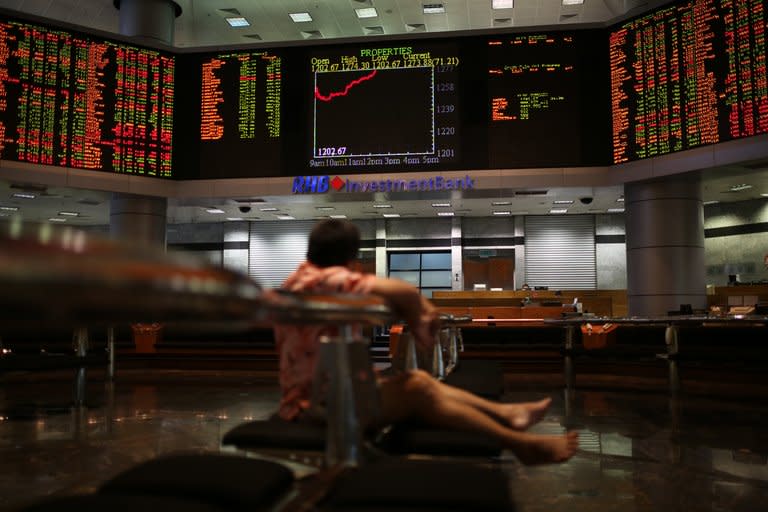Market abuzz as Malaysia IPO boom poised to resume
Malaysia was among the world's IPO leaders last year and the pace looks set to pick up again with tense elections out of the way and expectations that the government will push a reform agenda. Malaysia's exchange had a banner year for initial public offerings in 2012 as big issues capitalised on a rising share index and perceptions that a government plan to revitalise the economy would spur new investor interest. Activity cooled in recent months, however, as investors held their breath in the run-up to hard-fought May 5 elections, but the 56-year-old ruling coalition once again retained power, promising policy continuity. "The election may have held things up but a lot of money is still trying to come into this region and Malaysia is seeing good growth and is potentially attractive," said Gundy Cahyadi, an economist with OCBC bank in Singapore. A flurry of confirmed or rumoured IPOs to emerge post-election has caused a buzz in the market. In the biggest so far, IOI Corp., one of Malaysia's top palm-oil producers, said Tuesday it planned to spin off its real-estate holdings in a listing late in the year. Company officials said it could raise $630 million. Among others, AirAsia X -- the long-haul arm of successful budget carrier AirAsia -- aims to raise up to $300 million in a possible July listing, a source close to the matter told AFP last week. With the European and US economies struggling, the global IPO market largely stalled in 2012 but Malaysia emerged as a bright spot with several major listings led by palm-oil giant Felda Global Ventures' $3.25 billion IPO last June. Malaysia was the world's fifth-largest IPO market last year, according to global accounting firm Ernst & Young, which said $7.34 billion was raised, up from $2.26 billion in 2011. Analysts credit market optimism over an ambitious "economic transformation" plan launched by Prime Minister Najib Razak after he took office in 2009. Malaysia saw impressive economic growth and rising incomes over the decades on the strength of rich natural and energy resources and the birth of a manufacturing industry. But it faces stiff competition from emerging neighbours like Indonesia, Thailand and Vietnam. Najib responded with a programme to kick-start investment to revitalise key industries and vault Malaysia toward developed-country status. The plan includes promises to water down policies that accord advantages in business to ethnic Malays -- the country's majority demographic -- but are seen as harming competition. Najib's results so far are widely viewed as mixed but analysts see plenty of upside, noting that government investment under the programme has helped shield Malaysia from the global economic headwinds. Malaysian GDP growth in 2012 was a respectable 5.6 percent. Ernst & Young said in a recent report the programme was "building a strong pipeline for local and foreign investor support". "Strong investor confidence and steady economic growth is expected to keep the country's IPO performance buoyant over the coming months," it said. Other companies considering IPOs include container port operator Westports, developer Iskandar Waterfront Holdings, and power generator Ranhill Energy and Resources. No details on those listings have emerged. But a feared market correction could buffet planned issues, analysts said. Malaysia's main stock index has climbed steadily since the economy emerged from a 2009 recession caused by the global downturn, and is near all-time highs. Malaysian investment holding company MMC said this week it was putting off to next year a possible IPO -- rumoured at up to $1 billion -- of its power unit Malakoff. MMC cited internal issues that it said could hinder growth. "It really is not a great time. Things will turn defensive," said Ooi Chin Hock, a dealer with Malaysia's M&A Securities. "But things could improve late in the year, and next year should be good."



